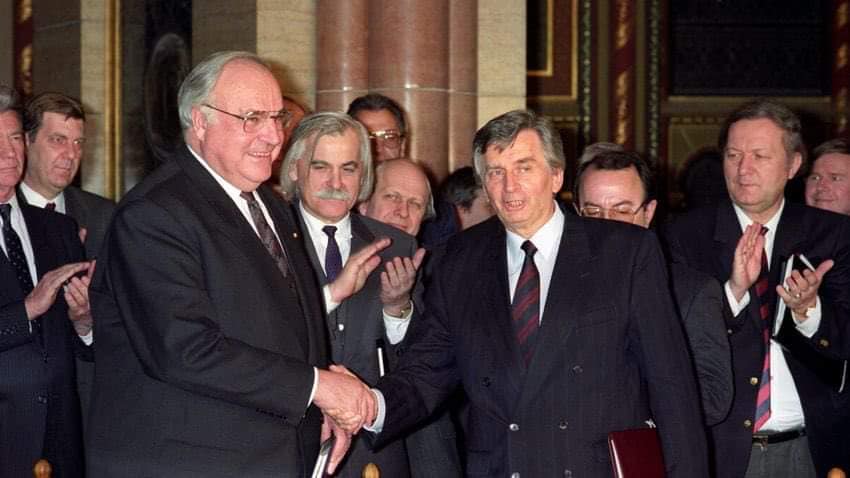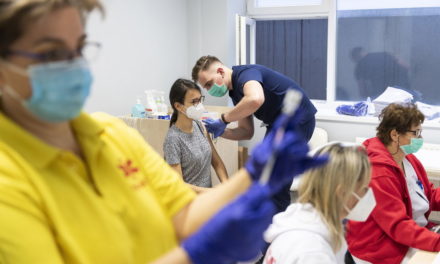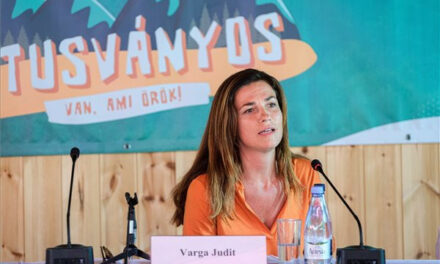The Hungarian-German friendship treaty was signed thirty years ago. In a friendship, it is natural that there are things that we think differently about. Nevertheless, we are also ready for the joint work of the next three decades - this is stated in the letter addressed by Minister of Foreign Affairs and Trade Péter Szijjártó to German Foreign Minister Annalena Baerbock on the 30th anniversary of the signing of the friendship treaty between the two countries. The minister published the letter on his Facebook page>
In his letter, he recalled that thirty years ago on this day, Prime Minister József Antall and Chancellor Helmut Kohl signed the treaty on friendly cooperation between the two countries. He went on to say that the unique historical bond between Hungary and Germany, which is still to be appreciated, is exemplified by many monuments. He pointed out that the single memorial plaque on the wall of the Reichstag captures the highlight of Hungarian-German friendship, the moment when Hungary knocked out the first brick in the wall dividing millions of German families and even the whole of Europe.
Over the past thirty years, German-Hungarian economic relations have also developed into a success story, he added. The Hungarians and Germans have fulfilled the first part of their modern European mission, but the common mission continues, because the European Union is facing huge challenges. Péter Szijjártó pointed out that there has never been such a need for a strong and capable European Union as it is today. "We have come a long and successful way since the opening of the border in 1989. The "how to proceed?" however, we don't always think the same way today, which is okay, since we are sovereign countries, and the European Union is a special and unique alliance of sovereign countries," he said in his letter.
Political and social debates arising from different European identities and heritage, whether it is about the vision of the union or the societies of the member states, can have no other framework than a dialogue based on mutual respect and European treaties. Hungary actively participates in the common thinking about the future of Europe, in this it stands up for the union of the member states and is looking for ways to make the community safer and stronger, Péter Szijjártó indicated.
There are some big topics of the future, where the common mission is not to defeat each other, but to get to know each other's point of view, respect them and ensure that different models live side by side. The social vision, including the question of migration, and the relationship between family, parents and children belong to this category. He emphasized: Hungary does not wish to take away from anyone the right to define its own society in its own country, to determine how to ensure its self-sustainability, and to respect the framework established for the education of children, the national regulation of attitudes to life and other fundamental issues. "At the same time, we insist that the national regulations in these areas do not cross national borders, and that no attempt is made to do so with the involvement of the EU institutions. The peaceful coexistence of different social models and the keeping of disputes of this nature in the right place are fundamental from the point of view of the cohesion of the union," he emphasized.
Péter Szijjártó pointed out: In Hungary, the generation that did not inherit democracy and freedom, like those living on the more fortunate side of the continent and their descendants, is active both socially and politically, but fought for it. "It was not the political and cultural model imported from outside Europe that took root here, but a determined resistance to the oppressive political and cultural models, which we ourselves developed the necessary framework for the flourishing of democracy built on our constitutional heritage," he explained . "All this gives us a strong mandate to move the freezing debates leading to the internal division of the European Union, based on stigmatization and education, from the deadlock. The European institutions, not the European institutions, can do this, but only the member states that make up the European Union, and we must play an important role in this," the foreign minister's letter states.
Source: MTI
(Header image: Facebook)













